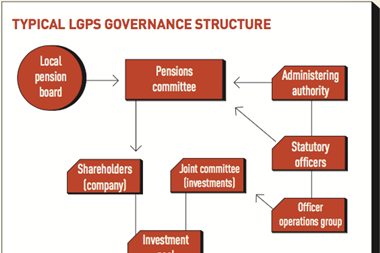The asset manager owned by 32 London pension funds has hit back at reports that it advised against investing in UK infrastructure in case of a change of government.
The London CIV – an asset pooling initiative for the UK capital’s local government pension schemes (LGPS) – is currently exploring how to provide its member funds with access to infrastructure, and was asked to present its work so far to the London Borough of Camden’s pension committee at a meeting on 29 November.
According to a report published by the council, the London CIV said two existing options for LGPS funds to invest in infrastructure were too focused on UK assets.
The Camden report said: “The CIV… believes it would be imprudent to expose the London pension funds to regulatory and political risk at a time when… UK political risk is heightened in the aftermath of the Brexit vote, and relatedly, a potential future change of government could lead to a sharp repricing of core infrastructure assets due to concerns over renationalisation and regulatory changes to existing contracts.”
Subsequent UK media reports linked the comments to the rise in popularity of the Labour Party, led by Jeremy Corbyn – an advocate of public ownership of infrastructure assets.
In a statement on its website, the London CIV said: “London CIV wishes to clarify that it has not issued and will not issue any advice to London boroughs about the impacts of a Labour government led by Jeremy Corbyn on any investments including infrastructure.”
The London CIV’s initial research – according to Camden’s report – had ruled out investing in the Pension Infrastructure Platform because it was too small and focused solely on the UK. Another pension-fund-only vehicle, GLIL, was also ruled out as it did not have a sufficient track record and was also focused primarily on the UK.
However, the CIV also highlighted low expected returns on UK infrastructure, meaning the asset class did not compensate for the political risk involved “particularly when compared to the (net) returns on similar assets overseas”.
Camden’s report stated that, “as the CIV’s product suite is built out, and, if valuations become attractive, the CIV would welcome the cross-pooling approach to infrastructure in the UK”.
GLIL – a joint venture between the Greater Manchester Pension Fund and the London Pensions Fund Authority with backing from three other LGPS funds – could be a future option for infrastructure investment for the CIV, the report said.
One of the main reasons for the UK government’s push for LGPS pooling was to increase capacity for infrastructure investment. Camden’s £1.3bn (€1.5bn) scheme is considering a 5% allocation to the asset class.
The London CIV has established a working group to assess its approach to infrastructure. Ryan Smart, infrastructure investment analyst at the CIV, has created a long list of roughly 100 managers, according to the report from Camden, as the pooling vehicle sought to provide options for the eight London boroughs actively seeking an allocation.
The CIV aimed to reduce the list down to 20 and appoint an independent adviser to help select managers, Camden said.







